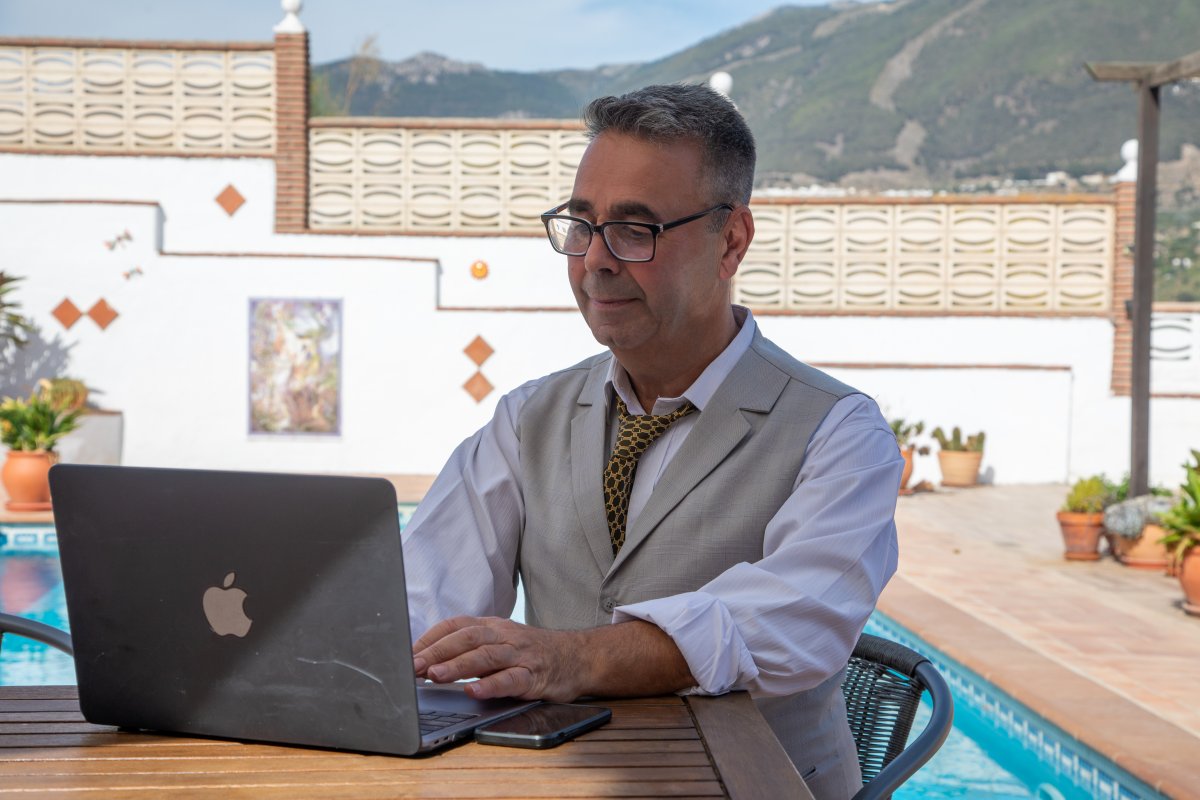Humanist Ceremonies
Humanist wedding ceremonies
Humanist wedding ceremonies are deeply rooted in celebrating love, human connection, and the profound commitment shared between two individuals. Unlike traditional religious wedding ceremonies, humanist weddings focus on the values and beliefs of the couple, emphasizing their unique relationship and journey together. They can include some religious content, but most often they do not, instead leaning more towards the thoughts and beliefs of each couple.
Humanist wedding ceremonies, otherwise know as symbolic wedding ceremonies or blessing ceremonies, often take place in beautiful natural settings, such as gardens, beaches, hotels and other wedding venue types. Here in Spain, it is very common for couples to choose a humanist wedding ceremony, which can be held at their wedding venue in front of their family and friends, while the legal part can be done back home at a registry.
One of the defining features of humanist weddings is personalization. Couples have the freedom to tailor every aspect of the ceremony to reflect their personalities, values, and beliefs. From the vows they exchange to the readings, music, and rituals incorporated, every element is chosen with care to resonate with the couple and their guests.Humanist celebrants, who officiate these ceremonies, work closely with the couple to craft a ceremony that truly reflects their love story and aspirations for the future. Celebrant, like myself spend time getting to know the couple, learning about their journey together, their shared interests, and what makes their relationship unique. This personal touch ensures that the ceremony feels authentic and meaningful to the couple and their loved ones.
During your wedding ceremony, you may choose to include rituals and symbolic gestures that hold significance for you. Humanist weddings also celebrate diversity and inclusivity. They welcome couples from all walks of life, regardless of religious or cultural background, sexual orientation, or gender identity. This inclusivity creates a warm and accepting atmosphere where everyone feels welcome and celebrated. At the heart of every humanist wedding is a celebration of love, joy, and the bonds that unite us as human beings. These wedding ceremonies offer couples a chance to declare their love in a way that feels true to who they are, surrounded by the people who matter most to them. And in doing so, they create memories that will last a lifetime.

Your Wedding in Spain.
The Costa del Sol, Malaga province of Spain, is a fantastic place in which to celebrate your marriage. With so many wedding venue choices and of course the warm Spanish weather, it's most often possible to hold your wedding ceremony outside, we well as your drinks reception and dinner too! If you need some advice, I can connect you with local wedding planners who can help you with just about everything you could need!
Of course, when it comes to your wedding ceremony in Spain I am here and ready to help, it would be my honour! Get in contact!
CALL/WHATSAPP: +34 651 884 512
Covering: Nerja, Torrox, Competa, Torre del Mar, Malaga, Benalmadena, Fuengirola, Mijas, Marbella, Estepona and everywhere in between! Wedding ceremonies in English for your celebration of love! I am Dave Parker, let's talk!
Personal Vows: One of the highlights of a symbolic ceremony is the opportunity for the couple to express their love and commitment through personalized vows. Whether written from the heart or inspired by poetry or literature, these vows serve as a heartfelt declaration of the couple's promises to each other.
Music and Readings: Music plays a significant role in setting the tone for a symbolic wedding ceremony in Spain. Couples may choose traditional Spanish music, such as flamenco guitar or classical melodies, to create a romantic ambience. Readings of poetry, literature, or meaningful passages may also be incorporated to add depth and symbolism to the ceremony.
Cultural Touches: Symbolic ceremonies often embrace the rich cultural heritage of Spain, infusing the celebration with elements such as traditional attire, regional cuisine, and customs unique to the couple's chosen location. This could include serving tapas and paella, incorporating flamenco dancers or musicians, or displaying décor inspired by Spanish motifs and colours.
Unity Rituals: Symbolic weddings often feature unity rituals that symbolize the merging of two individuals into a single partnership. Popular rituals in Spain include the 'ceremonia de la arena' (sand ceremony), where coloured sands are poured into a shared vessel to symbolize the blending of lives, or the 'ceremonia de las velas' (candle ceremony), where the couple lights a unity candle together...More info
Music and Readings: Music plays a significant role in setting the tone for a symbolic wedding ceremony in Spain. Couples may choose traditional Spanish music, such as flamenco guitar or classical melodies, to create a romantic ambience. Readings of poetry, literature, or meaningful passages may also be incorporated to add depth and symbolism to the ceremony.
Cultural Touches: Symbolic ceremonies often embrace the rich cultural heritage of Spain, infusing the celebration with elements such as traditional attire, regional cuisine, and customs unique to the couple's chosen location. This could include serving tapas and paella, incorporating flamenco dancers or musicians, or displaying décor inspired by Spanish motifs and colours.
Unity Rituals: Symbolic weddings often feature unity rituals that symbolize the merging of two individuals into a single partnership. Popular rituals in Spain include the 'ceremonia de la arena' (sand ceremony), where coloured sands are poured into a shared vessel to symbolize the blending of lives, or the 'ceremonia de las velas' (candle ceremony), where the couple lights a unity candle together...More info
Book your wedding ceremony
I am David parker, a professional independant wedding celebrant based on the Costa del Sol, Malaga province in Spain and I invite you to find out more about booking me for your wedding ceremony in southern Spain. Of course, I am English speaking too, so no need to worry about the Spanish lingo!

